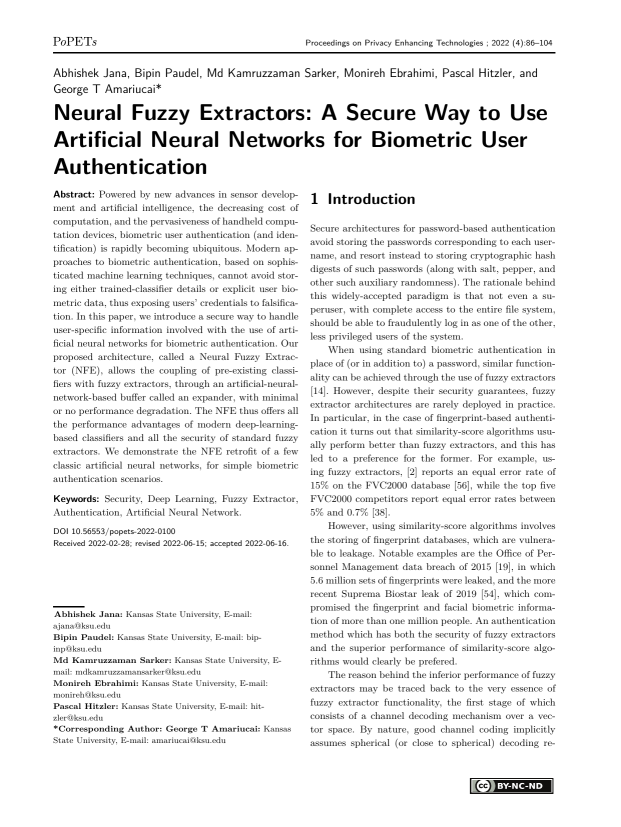Neural Fuzzy Extractors: A Secure Way to Use Artificial Neural Networks for Biometric User Authentication
Authors: Abhishek Jana (Kansas State University), Bipin Paudel (Kansas State University), Md Kamruzzaman Sarker (Kansas State University), Monireh Ebrahimi (Kansas State University), Pascal Hitzler (Kansas State University), George T Amariucai (Kansas State University)
Volume: 2022
Issue: 4
Pages: 86–104
DOI: https://doi.org/10.56553/popets-2022-0100
Abstract: Powered by new advances in sensor development and artificial intelligence, the decreasing cost of computation, and the pervasiveness of handheld computation devices, biometric user authentication (and identification) is rapidly becoming ubiquitous. Modern approaches to biometric authentication, based on sophisticated machine learning techniques, cannot avoid storing either trained-classifier details or explicit user biometric data, thus exposing users’ credentials to falsification. In this paper, we introduce a secure way to handle user-specific information involved with the use of artificial neural networks for biometric authentication. Our proposed architecture, called a Neural Fuzzy Extractor (NFE), allows the coupling of pre-existing classifiers with fuzzy extractors, through an artificial-neuralnetwork-based buffer called an expander, with minimal or no performance degradation. The NFE thus offers all the performance advantages of modern deep-learningbased classifiers and all the security of standard fuzzy extractors. We demonstrate the NFE retrofit of a few classic artificial neural networks, for simple biometric authentication scenarios.
Keywords: Security, Deep Learning, Fuzzy Extractor, Authentication, Artificial Neural Network.
Copyright in PoPETs articles are held by their authors. This article is published under a Creative Commons Attribution-NonCommercial-NoDerivs 3.0 license.

